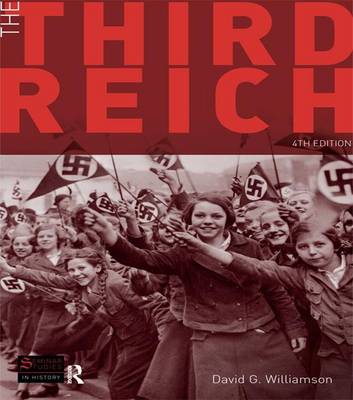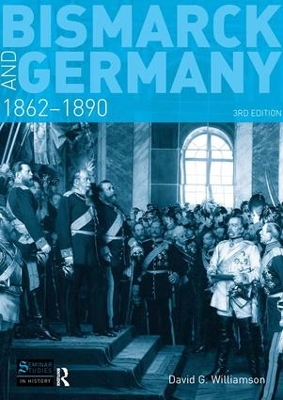Seminar Studies in History
3 total works
Since publication of the first edition in 1982, David Williamson's The Third Reich has become established as one of the most successful books in the Seminar Studies in History series. The author draws on up-to-date scholarship to guide students through the maze of historical controversies concerning the Third Reich and to offer a comprehensive analysis of the key issues of the period. In a clear and accessible manner, the new edition provides chapters that:
- introduce readers to the historiography of the Third Reich
- analyse the reasons for Hitler's rise to power
- look at how the Nazi regime consolidated it's grip on power during the period March 1933- August 1934
- explain how Nazi Germany was governed and discuss to what extent Hitler can be viewed as a 'weak dictator'
- analyse Hitler's economic, foreign and social policies in both war and peace up to 1945, as well as the development of Nazi racial and eugenic policies.
The analysis of these themes is backed up with an increased selection of documents, which enable students to discuss the key issues more fully. Providing a concise but comprehensive account of the origins, course and downfall of the Third Reich, this new edition of an already classic text will be an invaluable introduction to the subject for students.
Bismarck's role in the unification and consolidation of Germany is central to any understanding of Germany's development as a nation and its consequent role as aggressor in two world wars.
This study provides students with a concise, up-to-date and analytical account of Bismarck's role in modern German history. Williamson guides readers through the complex events leading to the defeats of Austria and France in 1866 and 1870 and the subsequent creation of a united Germany in January 1871. He then explores the domestic and foreign problems Bismarck faced up to 1890 in consolidating unification.


